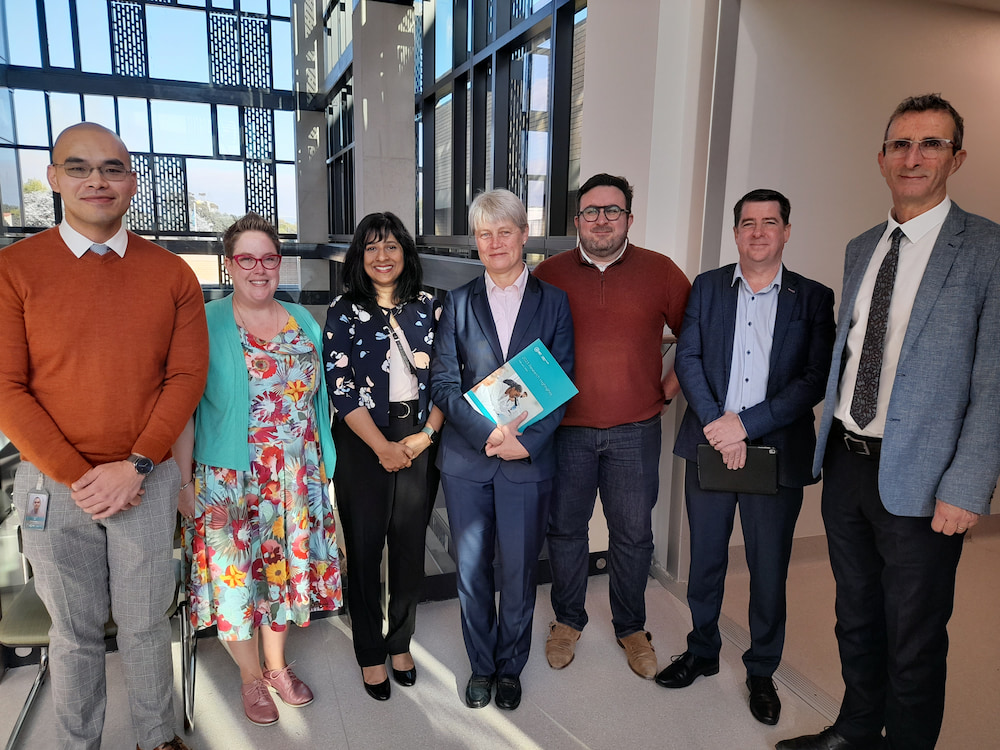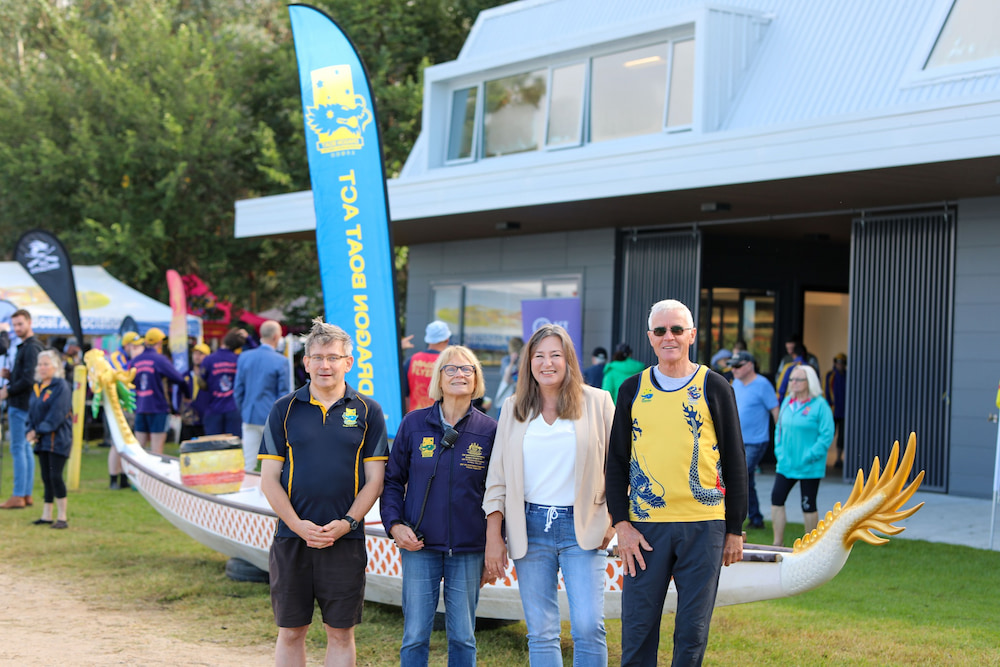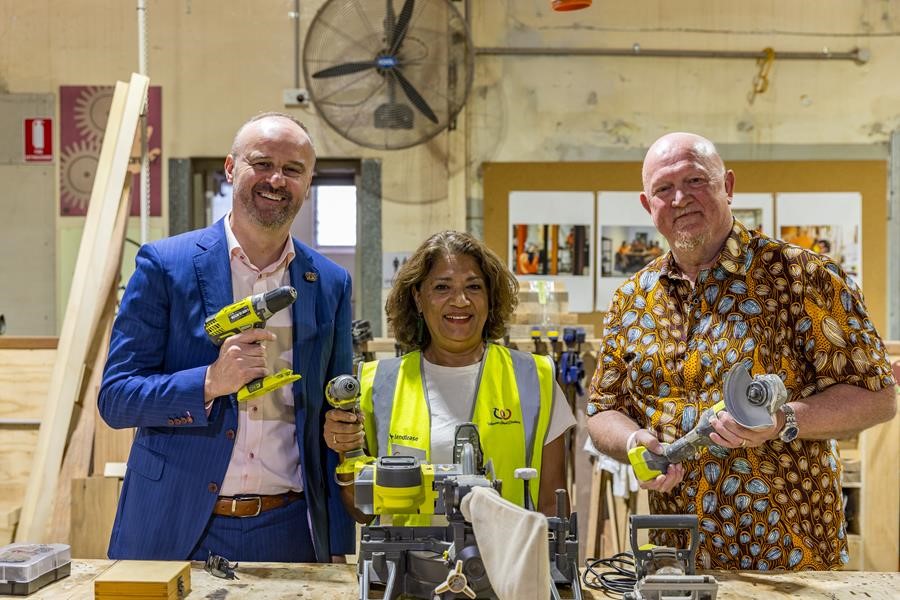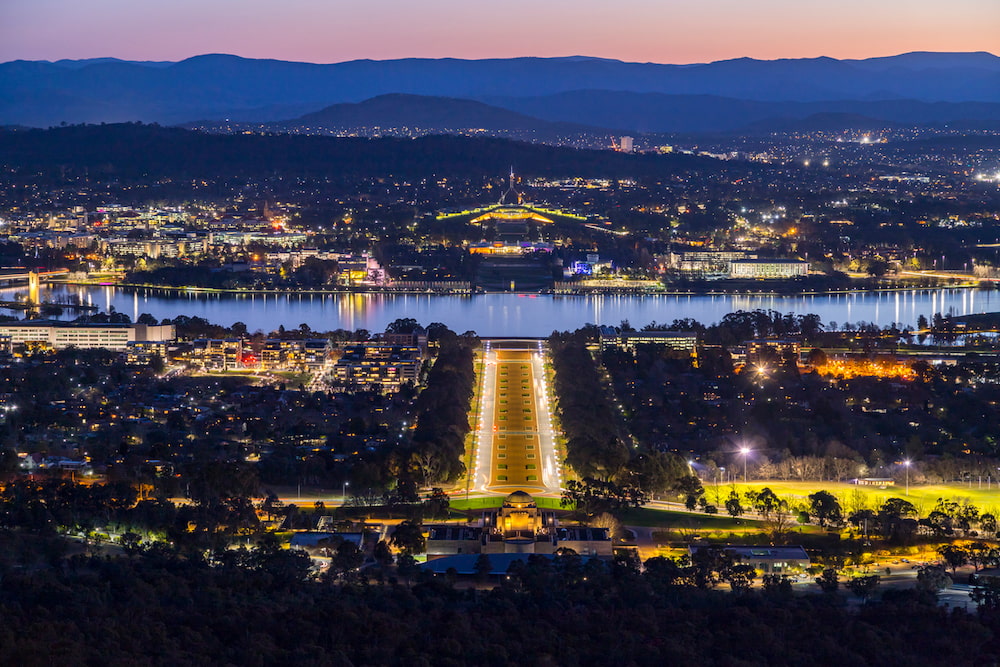Tourism
Visitor numbers and expenditure in the Capital in the year ending December 2023 broke records, according to Tourism Research Australia.
5.8 million people visited the ACT, and spent $3.8 billion – the highest ever visitor expenditure in a 12-month period over the past 25 years, surpassing 2022’s expenditure by $770 million, Chief Minister Andrew Barr announced.
Total visitor numbers recovered to 95 per cent from pre-COVID levels, and expenditure surpassed pre-Covid levels, at 135 per cent (compared to the year ending December 2019).
Most of the visitors (5.63 million people) were domestic, and they spent $3.33 billion. This is the highest ever number of visitor nights, the highest ever expenditure, and the third highest number of domestic visitors in the ACT in a twelve-month period over the past 25 years, Mr Barr said.
Of all states and territories, the ACT experienced the biggest growth in domestic overnight visitation, and second highest expenditure growth, when compared to the year ending December 2022.
NSW remains the main source of domestic visitors to the ACT, accounting for two-thirds of overnight visitors, and three-quarters of day trip visitors.
40 percent of international visitors came from the USA, UK, China, and India.
Health research
Canberra Health Services has released its first Research Highlights Report.
Last year, clinicians from Canberra Health Services undertook 619 active research projects, 122 new research projects, 163 active clinical trials, and 18 new clinical trials. Thirty-three clinicians collaborated with 10 universities, including the Australian National University, University of Canberra, and University of Sydney.
“There are many nation-leading research projects mentioned in the report, covering research topics related to autoimmune disease, immunodeficiency, period pain, pharmacy, wound healing and haematology,” health minister Rachel Stephen-Smith said.
For instance, Professor Mark Polizzotto (ANU) and his team at Canberra Hospital set up a clinical trial to reverse genetic mutations that accumulate in blood stem cells. They have developed a targeted medication to stop the changes happening in ageing bone marrow.

Housing
A 30-unit public housing development opened in Tuggeranong, and nine new public housing units have been built in West Belconnen. The homes units range from one to four bedrooms. They are suitable for disabled and old people; energy efficient; and close to shops, services, and transport.
The houses were delivered under the ACT Government’s Growing and Renewing Public Housing program, which aims to increase the total number of public housing in the ACT by 400 by 2027, housing minister Yvette Berry said.
Dragon boating’s new home
A new dragon boat facility opened at Grevillea Park on the shores of Lake Burley Griffin. The facility, run and maintained by Dragon Boat ACT, includes boat storage, training and timekeeping rooms, office space, amenities, and changerooms.
It can support training and competition activities for more than 600 members as well as interstate visitors taking part in local and regional regattas. The opening coincided with the ACT Dragon Boat Championships.
“Dragon Boat ACT has ten clubs, an ACT state team, and many of our paddlers represent Australia internationally,” president Donald Jenkins said. “Our members range in age from 12 to 80+ from across the community, including Dragons Abreast, DeafACT, youth, veterans, and all forms of diversity. The facility will help with our many activities, including regattas, training, corporate events, and come-and-try days.”
The ACT Government invested $2.1 million, and Dragon Boat ACT provided $360,000.
The facility was designed by Cox Architecture, and built by local construction company Projex.

Felons’ families
A new playgroup program in the Alexander Maconochie Centre, Canberra’s prison, keeps families connected while a parent is incarcerated.
ACT Corrective Services (ACTCS), together with SHINE for Kids, have launched a playgroup for prisoners at the AMC with children.
The Stay Together, Play Together program supports family relationships, improves children’s wellbeing, and better prepares prisoners to be parents when they are back home.
Emma Davidson, ACT Minister for Corrections and Justice Health, said the playgroup removes the discrimination and stigma that children and families face due to a parent’s imprisonment.
A UK review in 2017 found that prisoners who receive visits are 39 per cent less likely to reoffend than those who do not.
This program is the first playgroup offered to fathers in custody across any of the correctional centres that SHINE for Kids work with across Australia.
The first playgroup session went wonderfully, a SHINE facilitator said. One prisoner’s toddler fell asleep on his shoulder. “I can hear his heartbeat – I feel like a dad again,” he said.
Yeddung Mura Aboriginal Corporation, an organisation that helps Aboriginal detainees released from prisons and courts, will provide live music and culturally appropriate resources and activities to the playgroup.
Juvenile delinquents
The ACT Government increased the minimum age of criminal responsibility from 10 to 12 last year, and will increase it to 14 next year. To address the needs of children and young people engaging in harmful behaviour, the government has established the Therapeutic Support Panel for Children and Young People.
It sets up an alternative system focused on early intervention and diversion from the justice system, Rachel Stephen-Smith, Minister for Children, Youth and Family Services, said.
The panel is chaired by Dr Justin Barker, an urban anthropologist and youth studies academic. The other members of the Panel are experts in social work, psychology, education, disability, criminology, and working with Aboriginal and Torres Strait Islander children and young people. Three of the panel members are Indigenous.
Social Enterprise Grant
Fourteen social enterprises will share in $340,000 in the ACT Government’s new Social Enterprise Grant Program, which helps new social enterprises to start up, and existing ones to take the next step in their business journey.
The recipients are:
- Her Kitchen Table ($30,000)
- Women’s Shed Canberra ($30,000)
- The Climate Factory ($29,915)
- Fundraise for Australia ($12,500)
- GetAboutAble ($30,000)
- RecycleAbilities ($29,000)
- SeeMe Please ($30,000)
- Accessilife ($20,000)
- Endless Australia ($30,000)
- Catalyst Living Skills ($30,000)
- ShowGo ($28,585)
- U Shape Us ($20,000)
- Warehouse Circus ($10,000)
- The Easy Read Toolbox ($10,000
The Mill House Ventures delivers the grant program on behalf of the ACT Government.



